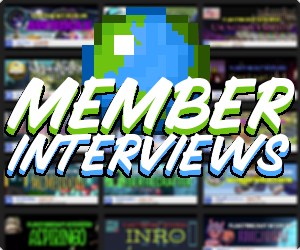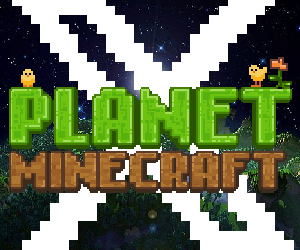3
At the end of the 20th century, digital economies emerged on the Internet. Today, they also exist in virtual worlds. These economies offer freedoms which are suppressed by state violence. Virtual worlds can employ arbitrary rule sets which may or may not impose subsidies, taxes, price controls, respect for private property or self-ownership, among other norms. Virtual worlds may be operated as socioeconomic experiments in a cost-effective manner; a few hundred dollars instead of tens or hundreds of thousands. Experiments of this variety may be conducted ethically because participation is voluntary. In a virtual world, participant activity can be recorded easily, which offers a more complete data set for empirical analysis. In this way, virtual worlds offer a means to explore the adverse effect of state policies without risking large amounts of capital or human lives and freedoms.
To achieve this goal, one must first establish a control condition as a baseline for comparison. In December 2015, I decided to create a demonstration of Austrian economics with libertarian ethics using the world’s best-selling computer game, Minecraft. Following two beta tests which failed to generate a profit, Liberty Minecraft’s official launch was in March 2017, and today it is a profit-generating proof of concept. In November 2017, I wrote “Building Liberty in Minecraft” for Zeroth Position in which we explored digital economies, Minecraft, and liberty. September 2018 marked the launch of a new world that offers several technical improvements. This article will be the first in a quarterly series of updates on the Liberty Minecraft project, and will explore three topics: is Liberty Minecraft a valid demonstration of Austrian economics and libertarian ethics, the differences between the Old World and the New World, and what has happened there so far.
Is Liberty Minecraft Valid?
Minecraft is not the real world. Minecraft items have familiar names; “Cooked Chicken” will satisfy “Hunger” and restore “Health,” but these names and their association to objects in the real world is completely illusory. Rather, in-game items offer some utility as a means to achieve goals, and this means that items in Minecraft can produce real incentive systems. Liberty Minecraft is not and is not intended to be a simulation of reality. However, the players involved and their freedom to express preferences are completely real. When real actors compete to acquire scarce means that satisfy ends, a real economy and society develops, even in a digital world. Liberty Minecraft is a game world which implements Austrian economics with libertarian ethics using smart contracts. Self-ownership, private property, commodity money, and trade are offered via computer code which executes on our game servers. The ‘physical laws’ of Liberty Minecraft are also enforced by computer code.[Footnote 1]
The Rule of Liberty Minecraft
A society will enjoy liberty whenever it abides by this rule: resolve nonviolent disputes nonviolently. This is the primary rule of Liberty Minecraft. Our players “must solve difficult problems without resorting to violence or threats of violence.”[1] I enforce this rule. Here, it is common for people to suggest that I have violently centralized power, that this decision abandons the free market for enforcement services, and therefore that Liberty Minecraft does not represent a libertarian society. Let us see why this is false. First, a person who rejects this rule cannot argue against being banned from Liberty Minecraft without committing a performative contradiction. Second, property owners are free to decide who can use their property, and I have decided that everyone who rejects my rule is not allowed to use my property. Third, I compete with thousands of server operators, and player participation on a Minecraft server is voluntary. Thus, I am accountable in the free market and will put valuable capital at risk by performing my functions poorly. This rule and its enforcement exist in a highly competitive market and are consistent with libertarian ethics and Austrian economics.
In addition, there are two Terms of Use which are implied but stated in answer to common questions. The first term of use is “Read and understand the rules.” No one can abide by a rule which they have not read and do not understand. The second term is “Do not hack the server.” Hackers can change the rules, and permitting hacking would defeat the purpose of setting rules. Here I also list a promise: “Within Liberty Minecraft, I promise to protect land which is claimed using Claim Blocks.” This brings us to a second criticism of Liberty Minecraft.
Read the entire article at ZerothPosition.com
Footnote
References:
To achieve this goal, one must first establish a control condition as a baseline for comparison. In December 2015, I decided to create a demonstration of Austrian economics with libertarian ethics using the world’s best-selling computer game, Minecraft. Following two beta tests which failed to generate a profit, Liberty Minecraft’s official launch was in March 2017, and today it is a profit-generating proof of concept. In November 2017, I wrote “Building Liberty in Minecraft” for Zeroth Position in which we explored digital economies, Minecraft, and liberty. September 2018 marked the launch of a new world that offers several technical improvements. This article will be the first in a quarterly series of updates on the Liberty Minecraft project, and will explore three topics: is Liberty Minecraft a valid demonstration of Austrian economics and libertarian ethics, the differences between the Old World and the New World, and what has happened there so far.
Is Liberty Minecraft Valid?
Minecraft is not the real world. Minecraft items have familiar names; “Cooked Chicken” will satisfy “Hunger” and restore “Health,” but these names and their association to objects in the real world is completely illusory. Rather, in-game items offer some utility as a means to achieve goals, and this means that items in Minecraft can produce real incentive systems. Liberty Minecraft is not and is not intended to be a simulation of reality. However, the players involved and their freedom to express preferences are completely real. When real actors compete to acquire scarce means that satisfy ends, a real economy and society develops, even in a digital world. Liberty Minecraft is a game world which implements Austrian economics with libertarian ethics using smart contracts. Self-ownership, private property, commodity money, and trade are offered via computer code which executes on our game servers. The ‘physical laws’ of Liberty Minecraft are also enforced by computer code.[Footnote 1]
The Rule of Liberty Minecraft
A society will enjoy liberty whenever it abides by this rule: resolve nonviolent disputes nonviolently. This is the primary rule of Liberty Minecraft. Our players “must solve difficult problems without resorting to violence or threats of violence.”[1] I enforce this rule. Here, it is common for people to suggest that I have violently centralized power, that this decision abandons the free market for enforcement services, and therefore that Liberty Minecraft does not represent a libertarian society. Let us see why this is false. First, a person who rejects this rule cannot argue against being banned from Liberty Minecraft without committing a performative contradiction. Second, property owners are free to decide who can use their property, and I have decided that everyone who rejects my rule is not allowed to use my property. Third, I compete with thousands of server operators, and player participation on a Minecraft server is voluntary. Thus, I am accountable in the free market and will put valuable capital at risk by performing my functions poorly. This rule and its enforcement exist in a highly competitive market and are consistent with libertarian ethics and Austrian economics.
In addition, there are two Terms of Use which are implied but stated in answer to common questions. The first term of use is “Read and understand the rules.” No one can abide by a rule which they have not read and do not understand. The second term is “Do not hack the server.” Hackers can change the rules, and permitting hacking would defeat the purpose of setting rules. Here I also list a promise: “Within Liberty Minecraft, I promise to protect land which is claimed using Claim Blocks.” This brings us to a second criticism of Liberty Minecraft.
Read the entire article at ZerothPosition.com
Footnote
- One qualification must be added in every case because the game's servers are not hardened against hacking or human fallibility. While I do perform regular backups to prepare for inevitable failures, I will ask that the reader mentally append all game rules and 'physical' laws with the qualification “…unless a hacker, operator incompetence, operator malice, or any combination of the above causes this to change.” I am the server operator.
References:
- Woods, Tom (2018, June 26). “Ep. 1187: Private Property vs. No Private Property: The Results”. The Tom Woods Show.
- Machiavelli, Niccolo, and W. K. Marriott. The Prince (ch. 7). Project Gutenberg, 2017.
- Ibid, ch. 3.
| Tags |
tools/tracking
4204833
6
liberty-minecraft-quarterly-autumn-2018









Create an account or sign in to comment.